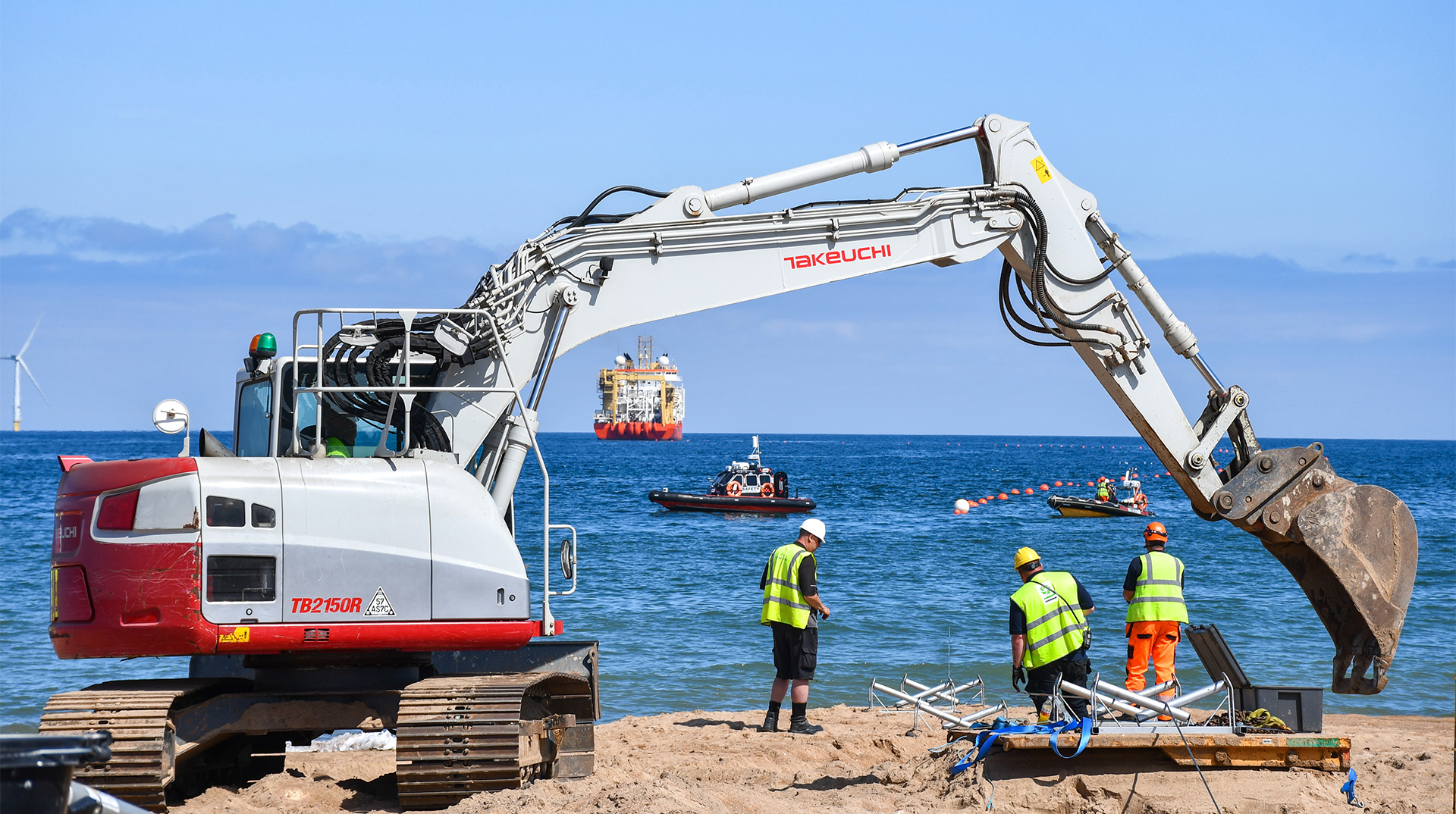“

Dmytro Dzhugalyk Author of news on Mezha.Media. I write about what I am actively interested in, namely technology, games and cinema.
Kardesa’s network of underwater fiber-optic communication lines includes four exit points on the coast – in Bulgaria, Georgia, Turkey and Ukraine. The project will increase the variability of digital routes, increase the reliability and speed of the Internet, and also contribute to investments in the development of the digital economy of the participating countries.
The first release of the cable to the coast is planned in Bulgaria in 2027, followed by Turkey, Georgia and Ukraine. Work on the Ukrainian site will take place exclusively in internationally recognized safe zones.
According to Vodafone’s press release, the value of the Kardesa project exceeds €100 million. The general contractor of the project is Xtera.
“Kardesa opens a new digital chapter for Ukraine. This project integrates our country into the leading global data transmission routes, creating new opportunities for business, investment and development of digital services. We are proud that our business is part of this strategic partnership,” said Olga Ustinova, CEO of Vodafone Ukraine.
The Kardesa system will provide increased bandwidth in the Black Sea region – more than 500 Tbit/s in addition.
Vodafone notes that the demand for new Internet traffic routes is growing exponentially worldwide, in part because there are now more than 5.8 billion mobile phone users, 80% of whom have smartphones.
By 2030, the number of mobile users will grow by another 12%. Other areas such as AI will further increase the demand for network bandwidth. According to the European Commission, 97-98% of international Internet traffic is transmitted precisely through submarine cable systems – and each new route is of strategic importance to the digital economy.
For Ukraine, this project will ensure digital sovereignty and security, increasing the reliability and stability of the telecommunications infrastructure, making the country a key transit link between Europe and Asia, and creating new jobs.
”, — write: www.pravda.com.ua

Dmytro Dzhugalyk Author of news on Mezha.Media. I write about what I am actively interested in, namely technology, games and cinema.
Kardesa’s network of underwater fiber-optic communication lines includes four exit points on the coast – in Bulgaria, Georgia, Turkey and Ukraine. The project will increase the variability of digital routes, increase the reliability and speed of the Internet, and also contribute to investments in the development of the digital economy of the participating countries.
The first release of the cable to the coast is planned in Bulgaria in 2027, followed by Turkey, Georgia and Ukraine. Work on the Ukrainian site will take place exclusively in internationally recognized safe zones.
According to Vodafone’s press release, the value of the Kardesa project exceeds €100 million. The general contractor of the project is Xtera.
“Kardesa opens a new digital chapter for Ukraine. This project integrates our country into the leading global data transmission routes, creating new opportunities for business, investment and development of digital services. We are proud that our business is part of this strategic partnership,” said Olga Ustinova, CEO of Vodafone Ukraine.
The Kardesa system will provide increased bandwidth in the Black Sea region – more than 500 Tbit/s in addition.
Vodafone notes that the demand for new Internet traffic routes is growing exponentially worldwide, in part because there are now more than 5.8 billion mobile phone users, 80% of whom have smartphones.
By 2030, the number of mobile users will grow by another 12%. Other areas such as AI will further increase the demand for network bandwidth. According to the European Commission, 97-98% of international Internet traffic is transmitted precisely through submarine cable systems – and each new route is of strategic importance to the digital economy.
For Ukraine, this project will ensure digital sovereignty and security, increasing the reliability and stability of the telecommunications infrastructure, making the country a key transit link between Europe and Asia, and creating new jobs.
